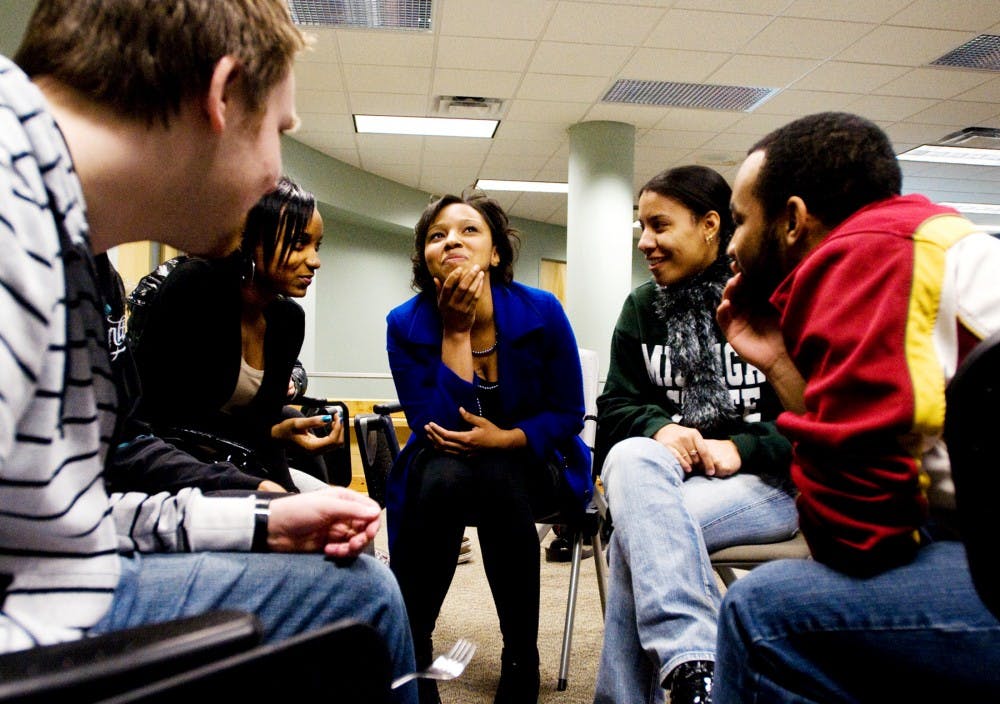Standing at the Hubbard Hall bus stop, Aaron Robertson was lost, staring at a map of the MSU campus.
He was a freshman and needed to find the bookstore. Fortunately, an aide from the Office of Cultural and Academic Transitions, or OCAT, was able to lend a helping hand.
“I stood (there) for about 20 minutes before a young man approached me and asked me if could he help,” Robertson said in an e-mail. “We began to talk. Luckily he was going the same direction so he rode the bus with me to my destination. On the ride he told me that he was an aide in Hubbard Hall and he would be helping me out this semester. … I found myself applying for the aide position the next Fall.”
Ever since 1969, OCAT has been helping students with cultural differences feel at home during their time at MSU, OCAT coordinator Pat Dyer-Deckrow said. The program began when black students were having a hard time acclimating to college, she said.
Throughout time, all minority communities slowly became more involved with OCAT, Dyer-Deckrow said.
Robertson, now a supply chain management senior, has been involved with OCAT since his freshman year. He is a cultural aide for residents in Holden Hall.
“What we do is simple,” Robertson said in an e-mail. “We are equipped to relay information to anyone who may need it.”
Cultural aides act as a resource, helping students adapt to a college environment by creating a genuine relationship with each student, he said. OCAT aides also organize programs each month tailored for students, covering topics including racial identity and global holidays.
Retail management senior Brittany Jackson is also a cultural aide in Holden Hall and became involved with OCAT during her junior year. Jackson likes being an aide because she can help her residents deal with different cultural issues that might be happening, she said.
“I like being able to see my residents grow over time,” Jackson said. “We have discussions about relationships, financial issues, whatever it may be. When they talk they can see they have more similarities than differences.”
Robertson thinks MSU is a diverse campus and said you never will meet two people who are exactly the same.
“Diversity is a necessity for collegiate growth,” Robertson said in an e-mail. “Without it, we hinder ourselves from having the full experience of college life.”
Part of supporting diversity on campus means honoring progress made in the past. Dyer-Deckrow said weekend celebrations of Martin Luther King Jr. Day are important for students of all backgrounds.
“We support the events going on (this weekend),” Dyer-Deckrow said. “We help students get (to the events).”
Jackson thinks days celebrating diversity are important and highly respects the things Martin Luther King Jr. accomplished during his lifetime.
“We lose sight of what’s going on,” Jackson said. “It’s good to have days like (Martin Luther King Jr. Day) that cause us to focus on things that have happened in the past.”
Support student media!
Please consider donating to The State News and help fund the future of journalism.
Discussion
Share and discuss “OCAT program, aides demonstrate King’s philosophy” on social media.







